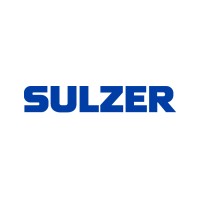
Sulzer Company Cyber Security Posture
sulzer.comSulzer is a global leader in critical applications for core infrastructure and processes for large essential industries around the world. We ensure the security, quality and durability of critical goods and services by supporting energy security, natural resource management and efficiencies in process industries. This in turn supports the transition to a circular economy. Our integrated solutions add significant value by enabling energy efficiency, carbon emissions and pollution reduction, and process efficiency improvements. Customers benefit from our commitment to innovation, performance and quality through our responsive network of 160 world-class manufacturing facilities and service centers across the globe. Sulzer has been headquartered in Winterthur, Switzerland, since 1834. In 2023, our 13’130 employees delivered revenues of CHF 3.3 billion. Our shares are traded on the SIX Swiss Exchange (SIX: SUN). www.sulzer.com
Sulzer Company Details
sulzer
10113 employees
366568.0
333
Machinery Manufacturing
sulzer.com
Scan still pending
SUL_1936185
In-progress
Between 900 and 1000
This score is AI-generated and less favored by cyber insurers, who prefer the TPRM score.
 Sulzer Global Score
Sulzer Global Score.png)

Sulzer Company Scoring based on AI Models
| Model Name | Date | Description | Current Score Difference | Score |
|---|---|---|---|---|
| AVERAGE-Industry | 03-12-2025 | This score represents the average cybersecurity rating of companies already scanned within the same industry. It provides a benchmark to compare an individual company's security posture against its industry peers. | N/A | Between 900 and 1000 |
Sulzer Company Cyber Security News & History
| Entity | Type | Severity | Impact | Seen | Url ID | Details | View |
|---|
Sulzer Company Subsidiaries

Sulzer is a global leader in critical applications for core infrastructure and processes for large essential industries around the world. We ensure the security, quality and durability of critical goods and services by supporting energy security, natural resource management and efficiencies in process industries. This in turn supports the transition to a circular economy. Our integrated solutions add significant value by enabling energy efficiency, carbon emissions and pollution reduction, and process efficiency improvements. Customers benefit from our commitment to innovation, performance and quality through our responsive network of 160 world-class manufacturing facilities and service centers across the globe. Sulzer has been headquartered in Winterthur, Switzerland, since 1834. In 2023, our 13’130 employees delivered revenues of CHF 3.3 billion. Our shares are traded on the SIX Swiss Exchange (SIX: SUN). www.sulzer.com
Access Data Using Our API

Get company history
.png)
Sulzer Cyber Security News
Sulzer pumps optimises its processes with MSC
Machinery Market Magazine, the top magazine for UK Manufacturing and Machinery News.

Sulzer Similar Companies
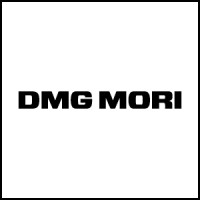
DMG MORI
DMG MORI is a leading global manufacturer of high-precision machine tools and is represented in 44 countries – with 124 sales and service locations, including 17 production plants. In the “Global One Company”, more than 13,500 employees are driving the development of holistic solutions in the manufa
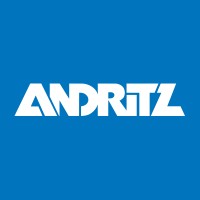
ANDRITZ
ANDRITZ is an international technology group based in Austria. The company offers a broad portfolio of innovative plants, equipment, systems, services and digital solutions for a wide range of industries and end markets. Sustainability is an integral part of the company’s business strategy and cor
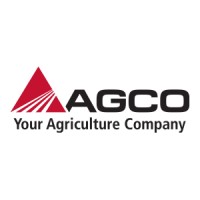
AGCO Corporation
AGCO is a global leader in the design, manufacture and distribution of smart solutions for sustainable agriculture. Our portfolio is the most comprehensive in the ag industry, including a full line of tractors, combine harvesters, hay and forage equipment, seeding and tillage implements, grain stora

Nippon Light Metal
Nippon Light Metal Company plays an active part in the aluminum business. We've been providing various products made by aluminum. Our products are not only made by aluminum as metals; aluminum oxide, aluminum hydroxide and poly aluminum chloride are our products too. While, we've been providing our
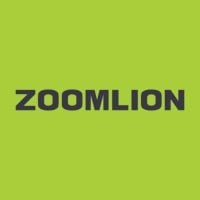
Zoomlion
Founded in 1992, ZOOMLION Heavy Industry Science & Technology Co., Ltd. is mainly engaged in developing and manufacturing major high-tech equipment in the areas of engineering industry and agricultural industry. With more than 20 years of innovation and development, the company is now a global enter
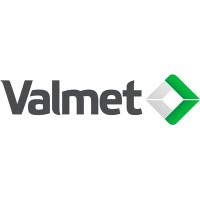
Valmet
Valmet has a global customer base across various process industries. We are a leading global developer and supplier of process technologies, automation and services for the pulp, paper and energy industries, and with our automation and flow control solutions we serve an even wider base of process in

Frequently Asked Questions
Explore insights on cybersecurity incidents, risk posture, and Rankiteo's assessments.
Sulzer CyberSecurity History Information
How many cyber incidents has Sulzer faced?
Total Incidents: According to Rankiteo, Sulzer has faced 0 incidents in the past.
What types of cybersecurity incidents have occurred at Sulzer?
Incident Types: The types of cybersecurity incidents that have occurred include .
Incident Details
What are the most common types of attacks the company has faced?
Additional Questions
What Do We Measure?
















Every week, Rankiteo analyzes billions of signals to give organizations a sharper, faster view of emerging risks. With deeper, more actionable intelligence at their fingertips, security teams can outpace threat actors, respond instantly to Zero-Day attacks, and dramatically shrink their risk exposure window.
These are some of the factors we use to calculate the overall score:
Identify exposed access points, detect misconfigured SSL certificates, and uncover vulnerabilities across the network infrastructure.
Gain visibility into the software components used within an organization to detect vulnerabilities, manage risk, and ensure supply chain security.
Monitor and manage all IT assets and their configurations to ensure accurate, real-time visibility across the company's technology environment.
Leverage real-time insights on active threats, malware campaigns, and emerging vulnerabilities to proactively defend against evolving cyberattacks.




